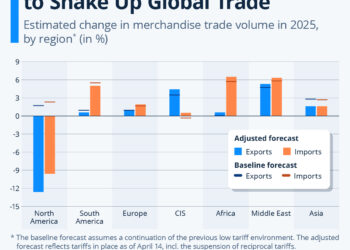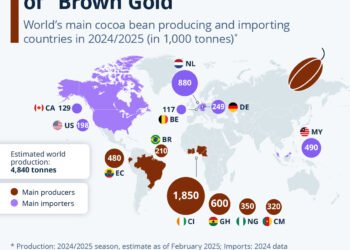In November of last year, Anthropic launched an open-source initiative known as the Model Context Protocol (MCP). Although the announcement didn’t make a big splash in the news at that time, MCP has quickly gained traction. Now, major AI players like OpenAI and Google have committed to supporting this MCP standard. But what exactly is MCP, and how can it be utilized in AI? We’ve outlined the details of the Model Context Protocol below to help clarify its functionality and applications.
What is the Model Context Protocol in AI?
The Model Context Protocol (MCP) is an open-source standard crafted by Anthropic, the organization behind the Claude AI chatbot. MCP enables AI models to access external data, interpret it, and perform actions through a universal connection point. While AI models are incredibly capable, they typically operate in isolation and aren’t able to access your files or read communications in platforms like Slack.
To allow AI models to connect with external data or systems, companies usually need to create specific connectors for each application. MCP simplifies this by offering a universal connector (a standardized protocol) that facilitates interaction with external data sources. For example, through MCP, an AI model such as Claude could be linked with services like Google Drive or GitHub.
Thanks to the universal MCP protocol, AI models can interact with data sources in a secure and context-sensitive manner. It establishes a bidirectional link: one from the MCP server and another from the MCP client. For instance, the Claude Desktop app acts as an MCP client requesting data, while the MCP server serves as the connector delivering that data.
MCP is tailored for developers, allowing them to create MCP servers and clients. So what does that mean for regular users like us? Well, consumers can install MCP servers for popular platforms including Google Maps, WhatsApp, Slack, Google Drive, GitHub, Bluesky, Windows, macOS, Linux, and more. This means you can retrieve information from these services using an AI chatbot such as ChatGPT.
love the feedback! – to MCP it is! https://t.co/EY0bx5uZOf
— Sundar Pichai (@sundarpichai) April 9, 2025
You can also link MCP servers to your computer’s local file system, enabling you to read and modify files seamlessly. Being an open-source project, anyone has the ability to develop an MCP server/client tailored to their specific workflow, making it possible to connect a powerful AI model to various external data sources.
Essentially, MCP paves the way for large language models (LLMs) to leverage their intelligent capabilities to engage with external applications, tools, and services. While the Claude desktop app already supports MCP, numerous top-tier companies like Google, Microsoft, and OpenAI have declared their intention to adopt the MCP protocol in the future.
Is the Model Context Protocol (MCP) an AI Agent?
Some may mistakenly conclude that MCP is an AI agent, but it is, in fact, a standard communication protocol that enables interactions between AI models and external data sources. An AI agent typically engages in planning, decision-making, and executing tasks delegated to it. In contrast, MCP allows for data accessibility between different systems.
However, MCP has significant potential to enhance the reliability of AI agents. It can unlock the full capabilities of these agents. At the recent Google Next 2025 event, Google introduced the Agent2Agent Protocol (A2A), which enables AI agents to communicate amongst themselves. Google states in their blog post: “A2A is an open protocol that complements Anthropic’s Model Context Protocol (MCP), providing valuable tools and context to agents.”
As we move into an era where AI agents are increasingly prevalent, MCP is poised to significantly enhance their functionality and adaptability.
Notable MCP Servers You Should Consider
While numerous community-driven MCP servers exist, created by independent developers, Anthropic has developed several excellent MCP servers for users to experiment with. For instance, the Google Drive MCP server allows users to search for and access files from Google Drive using the Claude Desktop app.
The Filesystem MCP server enables you to read, write, create, delete, move, and search for files on your local system. Meanwhile, the Slack MCP server allows for channel management, sending messages, responding to threads, retrieving messages, and much more. Additionally, the GitHub MCP server facilitates repository management, file operations, branch creation, etc.
Beyond that, other popular community-generated MCP servers include Google Calendar MCP, which helps you view schedules, and add or remove events. You can also set up MCP servers for many platforms, such as Airtable, Airbnb, Apple Calendar, Discord, Excel, Figma, Gmail, Notion, Spotify, Telegram, X (formerly Twitter), YouTube, and more. You can discover the most widely used MCP servers right here.
In summary, MCP is set to transform our interactions with AI chatbots. With this technology, AI applications can evolve beyond simple conversations and become genuinely helpful in executing tasks across various workflows.





